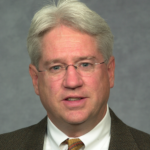For all the knowledge gained from the 1918 Spanish flu epidemic, it was the teachings of Catholic nuns coming to the aid of the sick in the Northeast, when nurses fell ill, that may be most instructive to where we find ourselves today. A recent opinion piece in the New York Times, “We Should All Be More Like the Nuns of 1918,” by Kiley Bense, described them working 12-hour shifts, demonstrating charity and self-sacrifice in caring for the sick and dying.
Years from now, when historians write a post-script to these times, they will echo the refrain, spoken widely today, that our current healthcare workers are nothing short of heroes.
Those historians also will note that the disease caused by the SARS-CoV-2 virus began as a health crisis, then quickly brought about an economic crisis. But is it too early to raise the prospect of whether we are about to experience a litigation crisis?
Not too soon for many in the plaintiff’s bar, apparently. But what is happening in our courthouses, at least by early filings, is hardly conventional. One might say the litigation is mutating faster than the virus. The lawsuits include class actions, state attorneys general actions and claims of wrongful death, breach of contract, employment discrimination and failure to test, train and plan for something so elusive that for many weeks was incapable of being diagnosed or even identified by any available tools. Even when tests arrived, the delay in results made the challenges even more acute.
Holding senior living communities and skilled nursing facilities – facilities that care for some of society’s most frail residents – to a standard that is impossible to meet hardly sounds evenhanded in a country where justice for all is a founding principle.
A recently filed New York class action provides insight into how plaintiffs are bringing these cases to increase liability exposure and exert pressure to settle aggregated claims. The plaintiff seeks to use the Americans with Disabilities Act to circumvent New York’s nursing home immunity law. Other filings will borrow from this playbook.
Facilities without outbreaks will not be spared. We already are seeing plaintiffs assert negligence claims from family members objecting to quarantine rules for their loved ones.
Maybe not so bleak
But just as there is hope on the horizon with new, efficacious therapies for patients and residents, as well as the prospect of clinical trials for a vaccine, all is not lost in our courthouses, either. The pathway forward for the industry may not be as bleak as it first might appear.
Consider first that the unprecedented nature of this pandemic is a realization that conventional rules should not apply. One need only review the many declarations from various statehouses that healthcare professionals who staff our long-term care facilities cannot be subject to liability, provided they do so using good faith and without gross negligence. Even in those states without such declarations, these pronouncements serve as an acceptance by most that ordinary standards of duty and due care have no application.
Consider second that arbitration agreements signed by the residents or proper representatives, where applicable, should limit the venue shopping that has been the hallmark of many who pursue these cases. Set aside whatever criticisms the plaintiff’s bar raises to such language. In this environment – with courthouses closed and the inevitable backlog that will be the new reality when they reopen – arbitration no doubt will lead to a more expeditious resolution than any court filing. A first line of protection already is in place.
Third, these cases should not be good suitors for class action treatment for many reasons. By focusing on the individual nature of claims and factual circumstances of the underlying allegations, senior living and care facilities have strong arguments to defeat class certification at the earliest stages of litigation.
Fourth, a documented timeline of events, responses and care and services provided can further inoculate from more severe results. The obligations of senior living communities and skilled nursing facilities likely will be evaluated much differently in a relatively short window.
Best practices to employ
Other best practices still can be employed, such as in the area of e-discovery. Litigation holds need to be in place, with appropriate consideration as to the scope. Plaintiff’s counsel continue to push this envelope, particularly as entities and their employee means of communications rapidly evolves. These data can be preserved if done so early.
The obvious points remain – focus on infection control and documenting efforts, including provision of necessary supplies and protective gear. Track attempts at procuring more personal protective equipment when unavailable and staying current with changing local, state and federal regulations.
If COVID-19 has changed the world, it would be equally true that it has changed our civil justice system and whatever conventional theories formerly applied to liability to the long-term care industry. A growing consensus holds that those have little application today.
As long-term care facilities continue to provide extraordinary care in extraordinary times, so too will they need an extraordinary strategy as they mount their defense, which must be aggressive, cohesive and unifying among all stakeholders. In addition to preparation for probable litigation, working closely with specialized counsel can help facilities keep abreast of legal developments, coordinate internal and external responses to COVID-19 challenges, and cultivate the “real-time” company story as it – and the science – develops.
Acts of charity and goodwill seemingly are eclipsing the undeniably tragic stories COVID-19 brought us. The work of those nuns is being emulated every day now, some 100 years later. As these stories are being shared, the narrative will continue to change.





